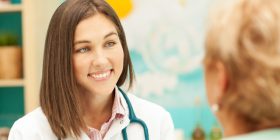Diabetes onset differs between type 1 and type 2, including the time it takes to develop and whether it can be prevented. As well, while most of the signs and symptoms of type 1 and type 2 diabetes are the same, there are some differences that you should be aware of.
What are the early signs of diabetes?
The most common early signs of type 1 and type 2 diabetes are very similar, and include:
- Unusual thirst
- Frequent urination
- Weight change (gain or loss)
- Extreme fatigue or lack of energy
- Blurry vision
Some signs are associated with type 2 diabetes only, and include:
- Having frequent and recurring infections
- Numbness or tingling in the hands or feet
How fast is the onset of diabetes?
The onset of type 1 diabetes is very quick. The time between when the pancreas stops producing insulin and the start of dangerous symptoms is quite short (usually just a few weeks or a month).
The onset of type 2 diabetes is often not nearly as fast. In fact, a person may have type 2 diabetes and not notice any signs or symptoms for months or even years.
What is the average age of onset for type 1 diabetes?
The average age of onset for type 1 diabetes is 14 years of age. Type 1 diabetes is usually diagnosed in childhood, adolescence or early adulthood. While it has been diagnosed in people who are over 30 years of age, this is very rare.
What is the average age of onset for type 2 diabetes?
The average age of onset for type 2 diabetes is between 45 and 64 years of age. Type 2 diabetes is usually diagnosed in adulthood, typically in people over 40 years old. However, due to the increasing numbers of overweight and obese people around the world, type 2 diabetes is now being diagnosed in children, adolescents and young adults.
How can I delay the onset of diabetes?
Type 1 diabetes is an autoimmune disorder that occurs when the body’s immune system destroys the beta cells in the pancreas. As a result, the pancreas can no longer produce insulin. Nothing can be done to prevent or delay the onset of type 1 diabetes.
Type 2 diabetes is not an autoimmune disorder, and people who are at risk can take some actions to prevent or delay its onset. These include eating healthy foods, exercising regularly and maintaining a healthy weight (or losing weight, if needed).
 Diabetes Care Community Learn, connect and care
Diabetes Care Community Learn, connect and care







